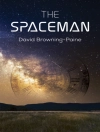H. G. Wells’ seminal work, ’The War of the Worlds, ’ intertwines elements of science fiction with profound social criticism, reflecting the anxieties of late Victorian society. Through its vivid depiction of a Martian invasion, Wells employs a first-person narrative that draws readers into a harrowing exploration of survival and societal collapse. The novel’s innovative use of unreliable narrators and intense imagery illustrates not only the terror of extraterrestrial encounters but also serves as an allegory for imperialism, colonialism, and the fragility of human civilization in the face of seemingly insurmountable forces. H. G. Wells, often hailed as the father of science fiction, was deeply influenced by the scientific advancements of his era, alongside his interest in social evolution. His background in biology and his progressive political beliefs informed his literary pursuits, leading him to challenge the status quo of his time. ’The War of the Worlds’ emerged in 1898 amidst a burgeoning fascination with science and technology, capturing the zeitgeist of an age teetering on the brink of modernity while grappling with its darker implications. This timeless novel is essential reading for those intrigued by the intersections of science, society, and human resilience. Whether you are a devoted science fiction enthusiast or a reader seeking profound philosophical reflections, Wells’ harrowing tale will compel you to confront the very essence of humanity amid the unknown.
Om författaren
H.G. Wells (1866-1946), born Herbert George Wells, was a prolific English writer prominent for his remarkable contributions to the science fiction genre. His literary prowess was distinguished by his ability to intertwine scientific concepts and prophetic visions of the future with captivating narratives. One of his most celebrated works, ’The War of the Worlds’ (1898), stands testament to his unique style, featuring the chilling tale of an alien invasion on Earth, offering both thrill and a satirical examination of Victorian society’s ethics and vulnerabilities. Wells’s narrative was groundbreaking, not just for envisioning advanced technologies such as the Heat-Ray and the Martian tripod fighting machines, but also for his innovative use of a mass media form as part of the story’s plot — underscoring his acute awareness of the power of communication. His extensive bibliography also includes other notable titles such as ’The Time Machine’ (1895), ’The Invisible Man’ (1897), and ’The Island of Doctor Moreau’ (1896), each pushing the boundaries of the genre and offering incisive commentary on contemporary political and social issues. A visionary in his thoughts and a craftsman in words, Wells’s work remains highly regarded for its imagination, foresight, and engaging storytelling, securing his legacy as one of science fiction’s founding fathers.












